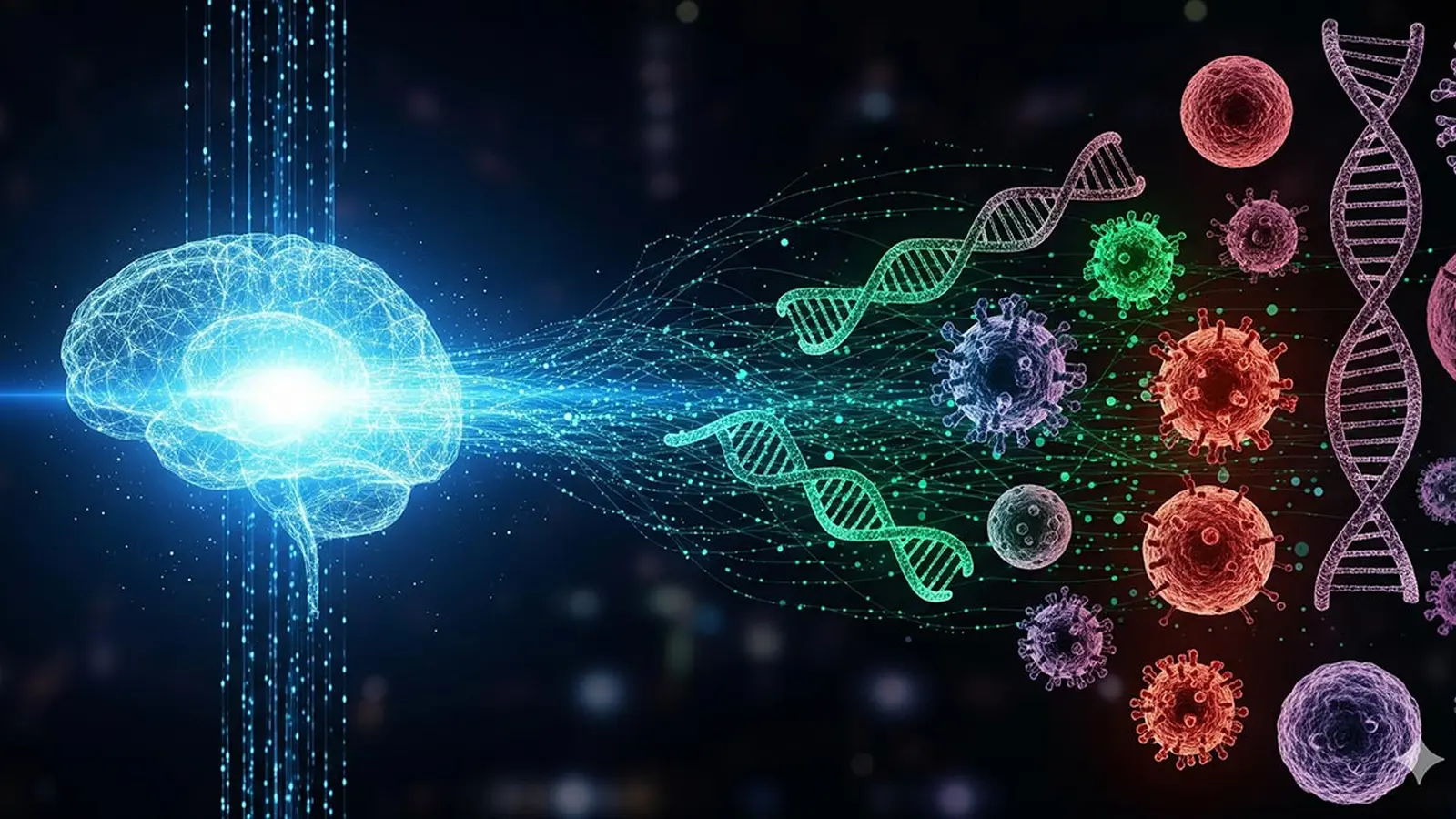3 Minutes
New AI forecasts thousands of medical outcomes
A multinational research team has developed an artificial intelligence model that can forecast the likelihood of more than 1,000 diseases years into the future based on a patient's medical history. Built on transformer neural network architecture — the same family of models that powers conversational agents like ChatGPT — the system, called Delphi-2M, promises a new scale of long-range clinical risk prediction.
How Delphi-2M works
Delphi-2M was trained on longitudinal health records from Britain's UK Biobank, a biomedical database of roughly half a million participants, and validated against nearly two million records from Denmark's public health registry. By treating sequences of diagnoses like sentences, the transformer model learns patterns, co-occurrence and order of events in patient histories — effectively identifying 'grammar' in clinical trajectories that can presage future illnesses.
Researchers report that the model can highlight individuals at substantially higher or lower risk of events such as heart attacks than traditional demographic factors alone would indicate. Unlike single-condition risk scores used in routine care, Delphi-2M is designed to generate simultaneous, long-term forecasts across hundreds of conditions.
Key figures
- Training data: ~500,000 UK Biobank participants
- Validation data: ~2 million Danish health records
- Scope: predictions for more than 1,000 diseases

Validation, limits and ethical considerations
The team has published results in a peer-reviewed outlet, but cautions that Delphi-2M is not ready for clinical deployment. External experts underscore important caveats: both the UK and Danish datasets are not fully representative across age groups, ethnicities and health outcomes, which may introduce bias into predictions. Additional testing in diverse populations, prospective validation and regulatory review will be required before any clinical application.
Health technology researchers highlight two parallel priorities: interpretability and ethical oversight. Interpretable or explainable AI helps clinicians understand why the model produces specific risk estimates, improving trust and safety. Some co-authors argue Delphi-2M is a step toward scalable and ethically responsible predictive modelling, but broader scrutiny remains necessary.
Potential use cases and system impact
Delphi-2M may eventually inform preventive medicine and health system planning if validated and integrated carefully. Possible applications include:
- Targeted monitoring of high-risk individuals
- Earlier clinical interventions to prevent progression
- Resource allocation and planning across strained healthcare systems
For comparison, widely used tools like QRISK3 estimate near-term cardiovascular risk for individual patients; Delphi-2M aims to cover many more conditions and longer horizons simultaneously, offering a different class of clinical decision support.
Why this matters for AI in healthcare
This work demonstrates how transformer-based models can be adapted beyond natural language to analyze longitudinal electronic health records and predict future diagnoses. The advance highlights both the opportunity of AI to broaden preventive care and the responsibility to address bias, transparency and validation before translating research into practice.
"Models like Delphi-2M could guide monitoring and earlier interventions," one researcher noted, while others urge continued testing and caution. As healthcare systems and regulators consider the role of large AI models, interpretability and equitable performance will be central to safe adoption.


Leave a Comment